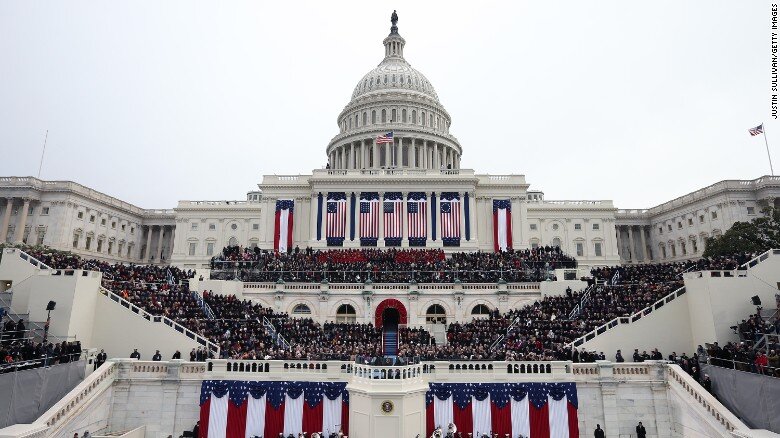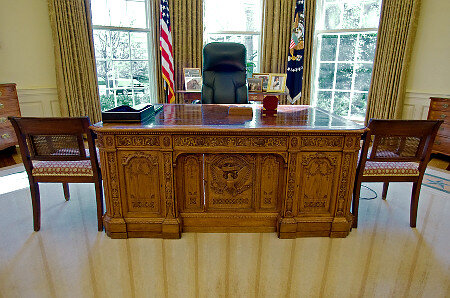Cuba Advocates Shouldn't Be So Confident About President Biden
/Cuba Advocates Shouldn’t Be So Confident About President Biden
Might & Might Not Do
Might Require President Diaz-Canel To Do
United States Companies Are Deliberately MIA
Cuba Resolving Venezuela Issues Would Change Dynamic
28 April 2020 from The Hill: “In large part, I would go back,” Biden said in an interview with a CBS affiliate in Miami. “I’d still insist they keep the commitments they said they would make when we, in fact, set the policy in place.”
Therefore, the most important questions for a Biden Administration: Has the Republic of Cuba kept its commitments to the [Barack] Obama Administration? Is legitimate for the Republic of Cuba to blame the Trump Administration for the Republic of Cuba not keeping commitments to the Obama Administration?
One perception among some in the United States Congress is the Obama Administration required little of the Republic of Cuba and the [Raul] Castro Administration squandered its commercial, economic and political moments which could have cemented the bilateral relationship rather than having nothing which was neither alterable nor reversible.
Another perception is a lack of empathy towards the Republic of Cuba as to the impact of Trump Administration decisions upon revenues from visitors. Among even advocates, there is shared agreement that the Republic of Cuba viewed the Obama Administration decisions to permit and to encourage individuals subject to United States jurisdiction to visit the Republic of Cuba became for the Castro Administration similar to the role of the U.S.S.R., China and Venezuela- a new benefactor whose financial support would permit the Republic of Cuba to forestall foundational commercial, economic and political changes- why change when others would pay for it not to change.
The Republic of Cuba must avoid connecting Trump Administration policies with [Miguel] Diaz-Canel Administration policies. Blaming Washington for Havana’s decisions will not have many sympathetic partners (particularly those with influence) on Capitol Hill. Seeking a quid-pro-quo will not find support.
If on 3 November 2020 The Honorable Joseph Robinette Biden, Jr. defeats The Honorable Donald John Trump, then advocates in the United States and the Republic of Cuba should not expect the Biden Administration to immediately nor in the medium-term reverse many or all of President Trump’s decisions relating to the Republic of Cuba.
If the [Nicolas] Maduro Administration remains in control of Venezuela through the transfer of power in Washington DC on Inauguration Day at 12:00 pm on 20 January 2021, and the Diaz-Canel Administration continues to provide support to Venezuela and Venezuela continues to provide subsidized oil products to the Republic of Cuba, then President Biden will have an even narrower range of options.
If, however, the Diaz-Canel Administration delivers an early resolution to issues relating to Venezuela- providing a safe-haven for members of the Maduro Administration, the Biden Administration would likely reward the Republic of Cuba- including support for a transparent four-year wind-down of subsidized oil deliveries from Venezuela and an agreement not to seek extradition of members of the Maduro Administration indicted by the United States Department of Justice.
The connectivity between the Republic of Cuba and Venezuela, while the Diaz-Canel Administration disputes the depth of that connectivity, does exist and has metastasized to impactfully define how the United States public sectors and private sectors view the bilateral relationship between the United States and the Republic of Cuba.
United States company c-suite executives don’t have an answer for and don’t want to answer: “Cuba supports Maduro; why would you want to do business with them?” Facts-on-the-ground don’t matter as much as public perception. Instructive to note that the most recent visit to the Republic of Cuba by a United States governor was 2017.
While President Biden will endeavor to differentiate his “strength” from the definition embraced by his predecessor, the newly-installed head of state will not want to appear weak- and there are members of the Democratic Party who believe (or need to believe to ensure their re-election) that President Trump, while often inarticulate and offensive with his use of words, has achieved beneficial, if in some instances not fully-achieved results with “fairness issues,” particularly with efforts including the United States-Mexico-Canada Agreement, Universal Postal Union rates, World Trade Organization rules, NATO member payments, Russia sanctions, and trade agreements (China, Japan, South Korea among others). President Biden may embrace much of the Trump Administration outside-our-borders policies, but doing so less in public than in private.
If on 20 January 2021 the United States Senate remains in control of the Republican Party, then President Biden will tread carefully with respect to the Republic of Cuba and Venezuela because he will need approval of his spending requests, confirmation of his administration nominees and judicial nominees, and support for treaties, bilateral agreements and multi-lateral agreements.
If the United States Senate is in control of the Democratic Party and the United States House of Representatives remains in control of the Democratic Party, then President Biden might find legislative initiatives relating to the Republic of Cuba and Venezuela heading to the Resolute desk for his signature. However, the Republican Party members in the United States Senate would retain substantial legislative authority to impact legislation relating to the Republic of Cuba.
With perhaps two Associate Justices of the United States Supreme Court likely to retire during the first year of President Biden’s term, he will be loath to do anything to jeopardize his nominees.
Issues relating to the Republic of Cuba will, as they often are, be commoditized, thus tradeable for more important objectives. The Republic of Cuba needs to make itself relevant rather await the United States to make it relevant.
Instructive to note from 20 January 2009 through 20 January 2017, and in particular from 17 December 2014 through 20 January 2017- the “period of re-engagement” when embassies were re-opened, the Obama Administration (led by some on the National Security Council staff) did not permit direct correspondent banking- perhaps the most basic foundation for bilateral commerce: the ability of a purchaser to directly electronically transfer funds to a seller within minutes to hours rather than days required for a purchaser using a financial institution (which receives a fee) located in a third country to transfer funds.
During the Obama Administration more than US$3 billion was transferred from the Republic of Cuba through third country financial institutions to United States companies for payments relating to agricultural commodities, food products, and healthcare products; and billions of dollars (including remittances, aircraft landing fees, dock fees, telecommunications fees, etc.) were transferred from United States companies through financial institutions in third countries, particularly Panama, to the Republic of Cuba.
Enabling direct correspondent banking would be one immensely significant decision by the Biden Administration as it would benefit authorized commercial transactions and compel Republic of Cuba government-operated financial institutions to be transparent and comply with United States regulations, resulting in greater confidence towards the Republic of Cuba and increased accountability by the Republic of Cuba.
President Biden will be a one-term president, and likely will confirm as much prior to the election in November 2020. Most first-term presidents avoid issues relating to the Republic of Cuba until well into their second term. He may not, however, feel encumbered from initiating dynamic or controversial decisions as would a newly-inaugurated president preparing immediately for a second term. His Madam Vice President may have differing views in preparing to be the presidential nominee of the Democratic Party in 2024.
The Biden Administration will have the benefit of reviewing the past as a guide for the future. What the Trump Administration did, what the Obama Administration did, what the Castro Administration did, and what the Diaz-Canel Administration is doing to determine what worked and what failed- and the reasons for each.
President Biden Might Seek From The Republic Of Cuba
· Cease support for Maduro Administration
· Permit United States companies to establish offices
· Permit direct payment to employees who are Republic of Cuba nationals
· Remove restrictions upon the self-employed
· Provide definitive explanation for injuries suffered by United States diplomats
· Negotiate settlement for the 5,913 certified claims
· Seek return of fugitives for crimes committed in New Jersey
President Biden Might Do (But Unlikely Rush To Do)
· Reinstate regularized government-to-government dialogue for departments and agencies
· Re-authorize commercial airline flights to all Republic of Cuba cities
· Use recess appointment to install United States ambassador
· Meet with President Diaz-Canel during the United Nations General Assembly
· Re-authorize unlimited remittances
· Debate re-authorizing People-To-People travel category
· Not soon re-authorize cruise ships
· Re-authorize U-turn financial transactions
· Authorize direct correspondent banking
· Remove travel restrictions upon diplomats from the Republic of Cuba
· Retain Libertad Act Title III lawsuits
· Permit students unimpeded travel to the Republic of Cuba
· Lessen use of Libertad Act Title IV letters
· Remove (if Trump Administration adds) from list of countries supporting terrorism
· Retain on list of countries not cooperating with United States counterterrorism efforts
· Reduce United States content rules for export controls
· Permit Republic of Cuba to replace its ambassador in Washington
What Might Happen Within The First Three Months
· Reinstate regularized government-to-government dialogue for departments and agencies
· Re-authorize commercial airline flights to all Republic of Cuba cities
· Retain Libertad Act Title III lawsuits
What Might Happen Within The First Six Months
· Re-authorize unlimited remittances
· Remove travel restrictions upon diplomats from the Republic of Cuba
· Discuss re-authorization of highly restrictive People-To-People travel category
What Might Happen Within The First Year
· Reduce United States content rules for export controls
· Permit students unimpeded travel to the Republic of Cuba
· Authorize direct correspondent banking
The Republic of Cuba is wishing-upon-a-star for President Trump to be defeated. However, unlike the catastrophic strategy implemented in 2015/2016 by the Republic of Cuba and Obama Administration when they convinced themselves The Honorable Hillary Clinton would not be defeated, the Republic of Cuba has modeled for President Trump’s second term and President Biden’s first term. Regardless of who wins, the Republic of Cuba should not be rejoicing.
Neither President Trump in his second term nor President Biden in his first term will be soon arriving to Jose Marti International Airport in Havana.
In September 2020, when the United Nations General Assembly meets in New York City, President Diaz-Canel should attend and request meetings with President Trump and with former Vice President Biden. That is what many other heads of state and heads of government who are thinking strategically will be doing.





